Navigating Brazil's complex import rules is a major challenge for any business. Misunderstandings about taxes, certificates, and regulations can lead to costly delays, fines, and destroy your profit margins.
To import electric cargo rickshaws into Brazil, you must handle multiple layers of federal and state taxes, secure specific battery safety certificates like UN38.3, meet INMETRO standards, and prepare extensive documentation for the SISCOMEX system. The total tax burden is significant.
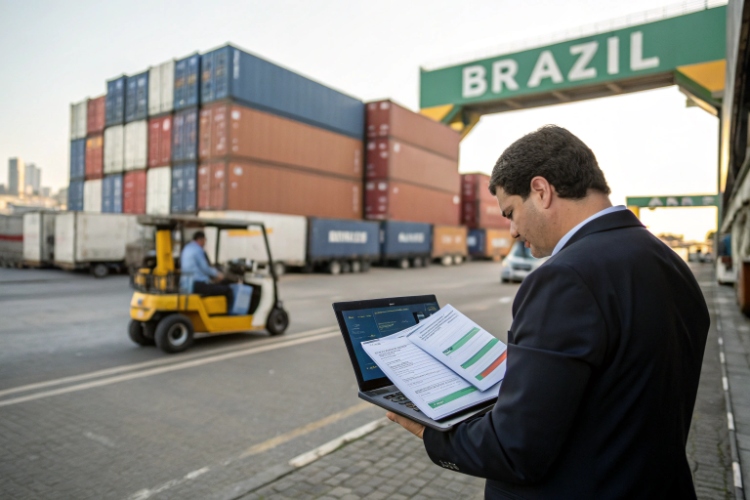
Бүкіл әлем бойынша электр көліктерін экспорттайтын зауыт ретінде біз Бразилия нарығының қаншалықты қиын болатынын өз көзімізбен көрдік. Көптеген елдерден айырмашылығы, Бразилияда салықтардың көп деңгейлі жүйесі, қатаң сертификаттау процесі және күрделі бюрократия бар. Маған Бразилиядағы көптеген әлеуетті серіктестер келді, олар нарықтық әлеуетке қуанады, тек жер құнының шындығынан бас тартты. Бірақ бұл мүмкін емес. Табысқа жету үшін мұқият жоспарлау, шығындарды терең түсіну және жақсы жергілікті серіктес қажет. Сізге білу қажет негізгі ережелер мен салықтарды қарастырайық.
Бразилияға электрлік жүк рикшаларын импорттау кезінде маған қандай құжаттар мен сертификаттар қажет?
Тапсырыс беруге дайынсыз, бірақ қағазға сенімді емессіз. Бір құжатты, әсіресе аккумуляторларға арналған, жетіспейтін болса, жөнелтіңіз портта апта бойы тұрып қалуы мүмкін, алымдар жиналып, тұтынушыларыңыздың көңілін қалдырады.
Коммерциялық шот-фактура, жүкқұжат және импорт лицензиясын қоса алғанда, құжаттардың толық жиынтығы қажет. Ең бастысы, батареялар үшін Бразилия кедені тексеретін халықаралық көлік қауіпсіздігі ережелеріне сәйкес болу үшін UN38.3 және MSDS сертификаттарын беру керек.
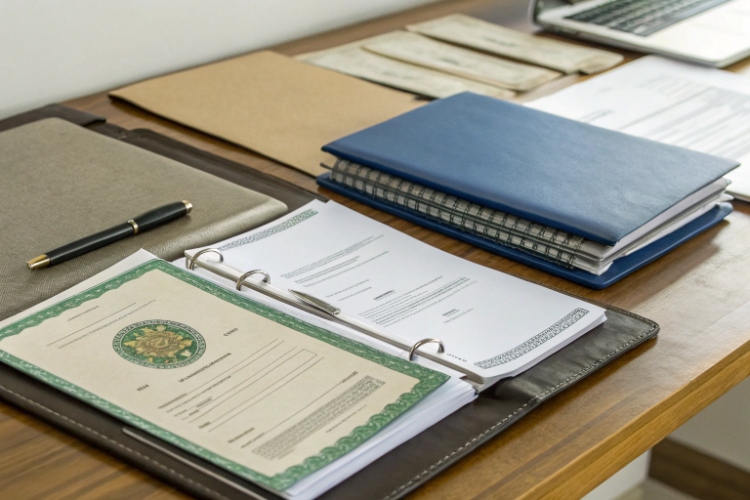
Бразилиялық жөнелтілім үшін құжаттаманы дайындау дәлдікті талап етеді. Бастамас бұрын, барлығы орын алатын электрондық сауда порталы SISCOMEX-ке кіру үшін бизнесіңіз RADAR жүйесінде тіркелуі керек. Бұл аяқталғаннан кейін біз құжат пакетін жинау үшін бірге жұмыс істейміз. Мен көрген сәтсіздіктің ең көп тараған нүктесі - батарея құжаттамасында. Мұнда тасымалдау желілері мен кедендері өте қатал.
Мұнда негізгі құжаттардың тізімі берілген:
- Стандартты жөнелту құжаттары: Бұған коммерциялық шот-фактура, жүкқұжат (B/L), орау тізімі және тауардың шығу тегі туралы сертификат кіреді.
- Импорт лицензиясы (LI): Сіз бұл лицензияны алуыңыз керек бұрын тауарлар біздің зауыттан жеткізіледі.
- Батареяның қауіпсіздік сертификаттары (өте маңызды):
- UN38.3 Есеп: Бұл литий батареяларын тасымалдаудың міндетті халықаралық стандарты. Бұл аккумулятордың тасымалдау кезінде қауіпсіздікке қатысты қатаң сынақтардан өткенін дәлелдейді (мысалы, діріл, қысқа тұйықталу, биіктік симуляциясы). Онсыз ешбір тасымалдау желісі жүкті қабылдамайды.
- MSDS (материалдық қауіпсіздік деректер парағы): Бұл құжат аккумулятордың химиялық құрамын егжей-тегжейлі сипаттайды және қауіпсіздік пен төтенше жағдайлар үшін пайдалану нұсқауларын береді. Оны тасымалдаушы компания да, кеден органдары да талап етеді.
Бұл батарея сертификаттары келісуге жатпайды. Біз барлық аккумуляторларымыздың сертификатталғанын қамтамасыз етеміз және әрбір жөнелтілім үшін осы құжаттарды қамтамасыз етеміз, бірақ импорттаушы олардың тазалау процесі үшін маңыздылығын түсінуі өте маңызды.
How do import duties, federal taxes, and ICMS influence the final landed cost of an electric cargo tricycle?
You've calculated the cost from the factory, but you have no idea what the final price will be after it lands in Brazil. This uncertainty makes it impossible to set a competitive retail price.
The final landed cost is heavily impacted by a cascade of taxes. You'll pay Import Duty (II), federal taxes like IPI and PIS/COFINS, and a state-level VAT called ICMS. Together, these can often double the original CIF value of the vehicle.
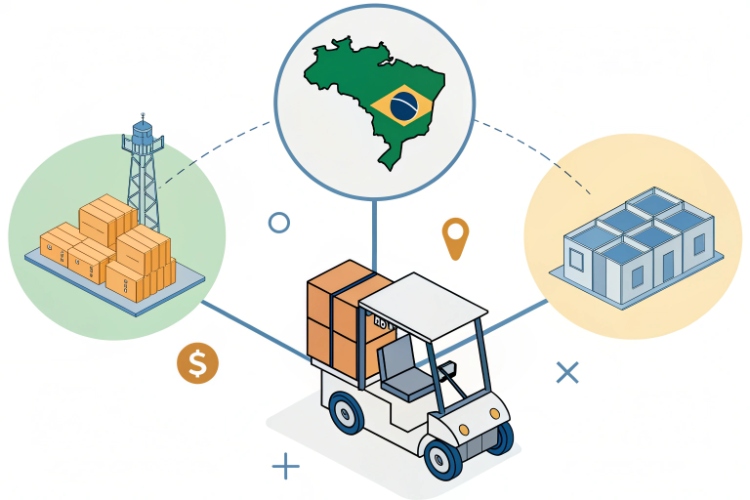
This is the most critical calculation for any importer in Brazil. Unlike a simple single tariff, Brazil applies taxes on top of taxes. Here is the typical sequence:
- Import Duty (II - Imposto de Importação): This is the first tax, calculated on the CIF (Cost + Insurance + Freight) value. For electric cargo vehicles, this rate is escalating, set to reach 35% by July 2026.
- Industrialized Products Tax (IPI - Imposto sobre Produtos Industrializados): This federal tax is applied to the CIF value plus the Import Duty. Rates vary, and while some EVs have enjoyed exemptions, these are being phased out.
- PIS/COFINS: These are federal social contributions also calculated on the import value.
- ICMS (Imposto sobre Circulação de Mercadorias e Serviços): This is a state-level value-added tax. Its rate varies by state (from 7% to 20%) and is calculated on the total of the CIF value plus all the previous federal taxes. This tax-on-tax effect significantly inflates the final cost.
For example, a US$5,000 vehicle could easily end up costing over US$10,000 by the time it clears customs, before you even account for local logistics and your own profit margin.
What technical standards or safety requirements must electric rickshaws meet to enter the Brazilian market?
You've found a low-cost supplier, but you're worried their vehicles won't be allowed on Brazilian roads. Importing a non-compliant vehicle is like throwing money away, as it will be rejected by customs.
All vehicles imported into Brazil must comply with safety standards set by INMETRO (National Institute of Metrology, Quality and Technology) and environmental regulations like PROCONVE. This means the vehicle must pass specific technical inspections to be legally sold.
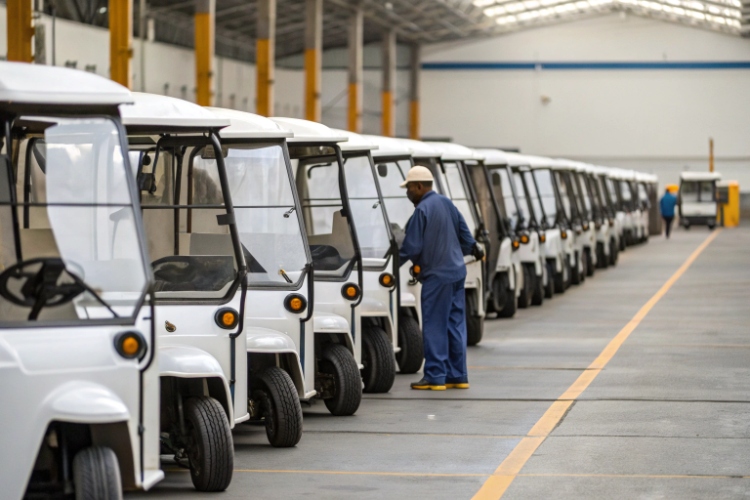
This is not an area to take shortcuts. Brazil is very strict about product conformity. The key authority is INMETRO, which sets rules for everything from the durability of the chassis to the safety of the electrical system. It's important to distinguish this from the battery certificates for shipping. The UN38.3 and MSDS get your product to Brazil safely. INMETRO certification gets your product sold legally -да Brazil.
For an electric cargo rickshaw, key compliance areas include:
- Vehicle Classification: Defining the vehicle's legal category (e.g., "three-wheeler," "light cargo vehicle") determines which specific rules apply.
- Safety Components: Brakes, lights, tires, and the frame must all meet INMETRO standards.
- Electrical System Safety: The entire high-voltage system, including the battery pack, motor, and controller, must be certified by an INMETRO-accredited body to prevent fire and electrical shock hazards.
As a factory, we work with our clients to ensure the product specification sheet aligns with these Brazilian standards.
What customs procedures, port fees, and compliance checks should importers prepare for?
Your container has arrived at the port. Now what? You are facing an intimidating process of clearance channels, fees, and inspections, with each step holding the potential for costly delays.
Importers must submit the Import Declaration via SISCOMEX, which then assigns a clearance channel (green, yellow, red, or grey). You should budget for port storage fees, customs broker fees, and potential physical inspections, especially for new products.
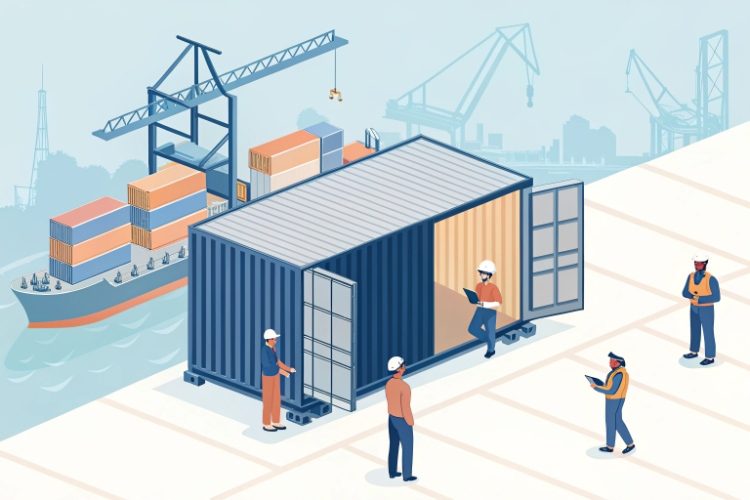
The arrival at the port is where your preparation pays off. Once we provide the shipping documents, your customs broker submits the Import Declaration (DI) into the SISCOMEX system. The system then uses a risk-based algorithm to assign your shipment to one of four "channels":
- Green Channel: Automatic clearance. The goods are released.
- Yellow Channel: Documents will be checked. The customs officer will review your invoice, certificates, etc. This is where having your UN38.3 and MSDS in order is crucial.
- Red Channel: A full physical inspection. Customs will open the container to verify the goods match the declaration.
- Grey Channel: A fraud investigation. Customs will deeply analyze the price and origin of the goods. This can take months.
To prepare, you must have a reliable customs broker. They are your guide through this process. You also need to budget for variable costs beyond the taxes, such as port storage fees and local transport. For our clients, we always recommend engaging a good broker early to get a full estimate of these "last mile" costs.
Қорытынды
Importing electric rickshaws into Brazil is complex due to heavy taxation, strict INMETRO standards, and non-negotiable documentation like battery certificates. Success depends on meticulous preparation and understanding all costs.

